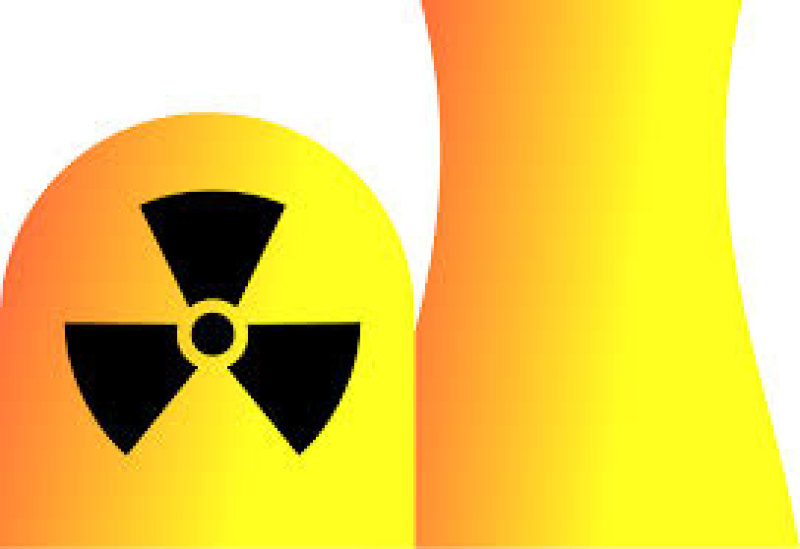- EC asks printing presses not to print election posters |
- Protect your votes, conspiracies still on: Tarique to voters |
- US ambassador warns of China's growing manufacturing dominance |
- PKSF, BARC join hands to boost agricultural research and growth |
- Govt Officials Barred From Backing ‘Yes’ or ‘No’ in Vote |
Nations Pledge to Boost Nuke Power to Fight Climate Change

Nuclear power plant symbol. Wikipedia.
PARIS — Representatives of 30 nations meeting in Brussels vowed to beef up nuclear energy Thursday as one solution to meet climate-fighting targets and guarantee reliable energy supplies. But the issue of nuclear power is divisive, and critics say it shouldn’t be part of the world’s approach to energy challenges.
The summit was the first of its kind, drawing leaders and delegates from the United States, Brazil, China and France, among others. The International Atomic Energy Agency, or IAEA, co-hosted the meeting and is promoting nuclear energy as a key way to reduce skyrocketing climate emissions.
IAEA chief Rafael Grossi said, “The heads of government, presidents, they believe that in the current context energywise, securitywise, nuclear has a very important contribution to make.”
Over 400 nuclear plants operate in about 30 countries, with another 500 planned or under construction.
But overall, nuclear represents 10% of global electricity generation. In a statement, countries attending the meeting committed to increasing nuclear power's potential, including by building new plants.
White House climate advisor John Podesta said, “I think what this summit will do, will put a marker down ... that expansion of nuclear power is critical for tackling the climate crisis that is really beginning to disturb everyone across the globe.”
European Union countries such as France, which gets about 70% of its electricity from nuclear power, believe it can help meet ambitious European climate goals.
But the EU itself is divided. Some member states, including Germany, Austria and Spain, have safety and environmental concerns about nuclear energy, including the waste it generates.
So do groups such as Greenpeace, whose activists protested the Brussels summit.
Lorelei Limousin, the climate and energy campaigner for Greenpeace EU in Brussels, said, “Nuclear power is too slow to tackle the climate emergency. Nuclear energy is also very expensive, and much more expensive than renewables today. Finally nuclear power remains dangerous today — with risks to health, environment, safety.”
Supporters say those risks can be managed — and they say that for now, increasing nuclear's share of the power mix is essential if the world is to turn around a dangerous climate trajectory. - VoA news

